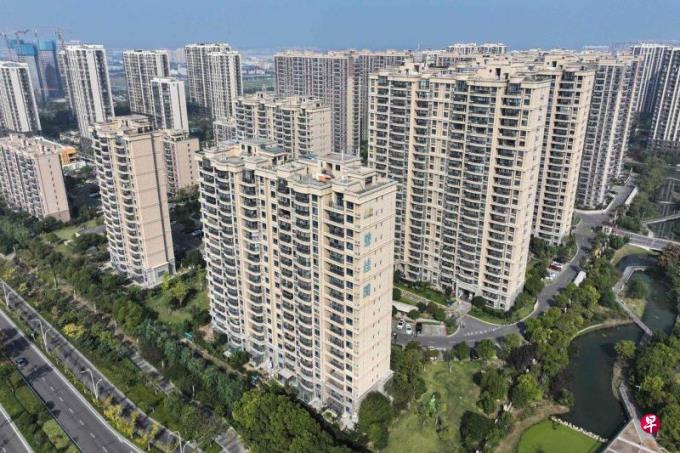
Under the frequent ease of the property market, the price of new housing in China has still recorded the largest decline in the past year in September, showing that market demand has continued to be sluggish.The analysis believes that the current policy can only stimulate the demand for just needing and improving the demand for buying a house. To keep the overall property market recover, it will be further improved by the public's confidence in macroeconomic.
The data released by the National Bureau of Statistics of China on Thursday (October 19) shows that the price of newly -built houses in 70 large and medium -sized cities fell by 0.3%in September, which was further expanded by 0.29%from August. It was October 2022The biggest decline in the previous month.This is also the third consecutive month of new house prices.
The price of new houses in first -tier cities decreased by 0.2%from the previous month to flat, mainly due to the driving of 0.4%and 0.5%of house prices in Beijing and Shanghai, respectively.The price of new houses in second -tier cities has dropped by 0.3 % month -on -month, and the decline has expanded by 0.1 percentage points from August.The price of new housing in third -tier cities decreased by 0.3 % month -on -month, a narrowing of 0.1 percentage points from last month.
According to statistics from the Central Plains Real Estate Research Institute, in September, a total of 175 real estate regulation policies have been released in China.However, during the traditional sales season, commonly known as "Kim Jiu", the number of cities with rising prices in new houses continued to decrease, from 17 in August to 15 in September.
The price of second -hand housing slipped 0.5 % in September, and the decline was the same as in August.The end of the second -hand housing prices in first -tier cities ended in the previous four months, and rose 0.2 % in September. The decline in second -tier cities was flat at 0.5 %, and the decline in third -tier cities expanded by 0.1 percentage points to 0.5 % from August.
Yan Yuejin, research director of the Easy House Research Institute of Real Estate Consulting Institutions, believes that the current house price index has the characteristics of "the decline has been curbed, first -tier cities have taken the lead in recovery, and other cities still need to work hard".However, he also pointed out that the number of cities with rising house prices in September continued to decrease, indicating that the current weak recovery is local, and it is still necessary to pay attention to the problem of weak housing prices indexes in cities."In the fourth quarter, it is necessary to further loosen policies and activate demand."
Zhang Xiaoduan, deputy dean of Dede Liangxing Research Institute, accepted an analysis during an interview with Lianhe Morning Post. Since September, a large number of purchase restriction policies have been canceled.The effect is more obvious.
Zhang Xiao Duan pointed out that the economic data that had been released one day before showing that the economy continued to improve, but the consumer psychology and the future expectations were still in a slow recovery process."The continuous recovery of the market needs to be supported by macroeconomic. If the trend of economic recovery can continue, it will drive the continuous rise in purchasing power and the people's confidence in the overall economic confidence can support the continuous recovery and activity of the demand for the property market."
According to the quarterly economic data released by the National Bureau of Statistics on Wednesday (October 18), the sales area of national commercial housing in the first three quarters of this year fell by 7.5%year -on -year and sales fell by 4.6%.The growth rate of asset investment has slowed down.
The report published by the Economist of Goldman Sachs Group predicts that the shrinking of the real estate industry will continue to drag China's economic growth in the next five years.
Wei Jingxian and other Goldman Sachs analysts pointed out that the growth of emerging industries such as batteries, new energy vehicles and renewable energy can only be partially offset the impact of real estate atrophy on China's GDP (GDP) and employment.With the expansion of the above industry, the decline in the property market and the decrease in the output of traditional automobiles, the average economic growth of China from 2023 to 2027 will decrease by 0.5 percentage points per year.




